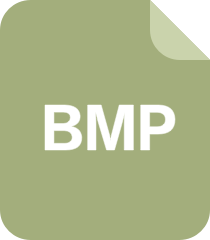
pass3200.rar_1553B_429_pass3200_runningrn9

2.虚拟产品一经售出概不退款(资源遇到问题,请及时私信上传者)
标题中的"pass3200.rar_1553B_429_pass3200_runningrn9"提到了几个关键术语,分别是"pass3200"、"1553B"、"429"以及"runningrn9"。这些术语在航天航空行业中具有特定的含义,下面将逐一解释这些概念。 1. **pass3200**: "pass3200"很可能是一个设备或系统的名字,可能是指一种高性能的处理器或者是一个特定的航空航天电子设备。由于没有更多的背景信息,我们只能推测它可能是处理大量数据或执行复杂计算的硬件或软件平台,特别针对航空航天领域的需求设计。 2. **1553B**: 1553B是一种军用标准的串行通信协议,全称为“ MIL-STD-1553B”。它广泛应用于飞机和其他军事装备中,用于控制和数据传输。1553B标准定义了数据总线的物理层、数据链路层和应用层,支持多路复用,能够高效、可靠地传递指令和传感器数据。这个标准是航空航天领域的重要通信方式之一。 3. **429**: ARINC 429,又称为Aeronautical Radio, Inc.(ARINC)标准429,是航空电子设备间数据通信的一种协议。与1553B相似,429标准也常用于飞机的系统之间,传输数据和指令。相较于1553B,429更适用于较低带宽的需求,通常用于传输状态报告和控制信息。 4. **runningrn9**: "runningrn9"可能是指一个运行状态或者版本号。"running"暗示着这是一个正在运行的进程或系统状态,而"rn9"可能代表软件的版本9或者某种运行模式9。在航空航天领域,这样的标记通常用于指示设备的运行状况或软件更新。 这个压缩包文件的内容可能与一个名为"pass3200"的系统或设备相关,该设备支持1553B和429这两种通信协议,表明它能适应不同的数据交换环境。"runningrn9"表示该系统处于运行状态,并且可能是在使用或测试的某个特定配置或软件版本。在航空航天工程中,这种兼容多种通信协议的设备往往用于实现飞行控制系统、导航系统或者其他关键任务的集成和数据交互。
 pass3200.rar_1553B_429_pass3200_runningrn9 (196个子文件)
pass3200.rar_1553B_429_pass3200_runningrn9 (196个子文件)  pcm1553.arc 1.06MB
pcm1553.arc 1.06MB a429pci-1.arc 82KB
a429pci-1.arc 82KB SBS_TEST.asu 83KB
SBS_TEST.asu 83KB Arinc.asu 36KB
Arinc.asu 36KB DX_demo.asu 18KB
DX_demo.asu 18KB SBS_ramp.asu 15KB
SBS_ramp.asu 15KB SBS_429.asu 12KB
SBS_429.asu 12KB a429_ramp.asu 7KB
a429_ramp.asu 7KB pass-team.bmp 8.9MB
pass-team.bmp 8.9MB splash.bmp 956KB
splash.bmp 956KB eq_id_002.csv 6KB
eq_id_002.csv 6KB eq_id_038.csv 5KB
eq_id_038.csv 5KB eq_id_029.csv 5KB
eq_id_029.csv 5KB eq_id_10A.csv 4KB
eq_id_10A.csv 4KB eq_id_10B.csv 4KB
eq_id_10B.csv 4KB eq_id_05A.csv 3KB
eq_id_05A.csv 3KB eq_id_004.csv 3KB
eq_id_004.csv 3KB eq_id_04D.csv 3KB
eq_id_04D.csv 3KB eq_id_005.csv 2KB
eq_id_005.csv 2KB eq_id_006.csv 2KB
eq_id_006.csv 2KB eq_id_025.csv 2KB
eq_id_025.csv 2KB eq_id_020.csv 2KB
eq_id_020.csv 2KB eq_id_02F.csv 2KB
eq_id_02F.csv 2KB eq_id_037.csv 2KB
eq_id_037.csv 2KB eq_id_03F.csv 1KB
eq_id_03F.csv 1KB eq_id_033.csv 1KB
eq_id_033.csv 1KB eq_id_003.csv 1KB
eq_id_003.csv 1KB eq_id_01A.csv 1KB
eq_id_01A.csv 1KB eq_id_0A1.csv 1KB
eq_id_0A1.csv 1KB eq_id_01C.csv 1KB
eq_id_01C.csv 1KB eq_id_0BB.csv 1KB
eq_id_0BB.csv 1KB eq_id_13A.csv 1KB
eq_id_13A.csv 1KB eq_id_114.csv 1002B
eq_id_114.csv 1002B eq_id_001.csv 921B
eq_id_001.csv 921B eq_id_02C.csv 920B
eq_id_02C.csv 920B eq_id_03B.csv 804B
eq_id_03B.csv 804B eq_id_0D0.csv 802B
eq_id_0D0.csv 802B eq_id_0CC.csv 766B
eq_id_0CC.csv 766B eq_id_03D.csv 718B
eq_id_03D.csv 718B eq_id_00A.csv 711B
eq_id_00A.csv 711B eq_id_0AD.csv 706B
eq_id_0AD.csv 706B eq_id_XXX.csv 617B
eq_id_XXX.csv 617B eq_id_01B.csv 590B
eq_id_01B.csv 590B eq_id_12C.csv 559B
eq_id_12C.csv 559B eq_id_011.csv 546B
eq_id_011.csv 546B eq_id_010.csv 535B
eq_id_010.csv 535B eq_id_035.csv 519B
eq_id_035.csv 519B eq_id_02B.csv 477B
eq_id_02B.csv 477B eq_id_03C.csv 471B
eq_id_03C.csv 471B eq_id_115.csv 429B
eq_id_115.csv 429B eq_id_027.csv 405B
eq_id_027.csv 405B eq_id_0B0.csv 399B
eq_id_0B0.csv 399B eq_id_0B1.csv 391B
eq_id_0B1.csv 391B eq_id_00B.csv 349B
eq_id_00B.csv 349B eq_id_041.csv 347B
eq_id_041.csv 347B eq_id_018.csv 335B
eq_id_018.csv 335B eq_id_0A4.csv 333B
eq_id_0A4.csv 333B eq_id_007.csv 330B
eq_id_007.csv 330B eq_id_031.csv 328B
eq_id_031.csv 328B eq_id_112.csv 327B
eq_id_112.csv 327B eq_id_0A2.csv 326B
eq_id_0A2.csv 326B eq_id_009.csv 324B
eq_id_009.csv 324B eq_id_01E.csv 309B
eq_id_01E.csv 309B eq_id_03E.csv 283B
eq_id_03E.csv 283B eq_id_0B5.csv 282B
eq_id_0B5.csv 282B eq_id_000.csv 278B
eq_id_000.csv 278B eq_id_0EB.csv 275B
eq_id_0EB.csv 275B eq_id_0B6.csv 267B
eq_id_0B6.csv 267B eq_id_0B9.csv 266B
eq_id_0B9.csv 266B eq_id_024.csv 265B
eq_id_024.csv 265B eq_id_012.csv 261B
eq_id_012.csv 261B eq_id_02D.csv 260B
eq_id_02D.csv 260B eq_id_030.csv 255B
eq_id_030.csv 255B eq_id_08D.csv 254B
eq_id_08D.csv 254B eq_id_0DE.csv 225B
eq_id_0DE.csv 225B eq_id_0--.csv 215B
eq_id_0--.csv 215B eq_id_0B8.csv 212B
eq_id_0B8.csv 212B eq_id_0A0.csv 211B
eq_id_0A0.csv 211B eq_id_08E.csv 208B
eq_id_08E.csv 208B eq_id_02A.csv 204B
eq_id_02A.csv 204B eq_id_0BC.csv 202B
eq_id_0BC.csv 202B eq_id_0B2.csv 202B
eq_id_0B2.csv 202B eq_id_0C7.csv 202B
eq_id_0C7.csv 202B eq_id_0A9.csv 201B
eq_id_0A9.csv 201B eq_id_0BD.csv 200B
eq_id_0BD.csv 200B eq_id_01F.csv 199B
eq_id_01F.csv 199B eq_id_026.csv 197B
eq_id_026.csv 197B eq_id_07E.csv 194B
eq_id_07E.csv 194B eq_id_241.csv 194B
eq_id_241.csv 194B eq_id_YYY.csv 193B
eq_id_YYY.csv 193B eq_id_160.csv 191B
eq_id_160.csv 191B eq_id_12B.csv 188B
eq_id_12B.csv 188B eq_id_341.csv 184B
eq_id_341.csv 184B F081D.DAT 851KB
F081D.DAT 851KB F049K.DAT 621KB
F049K.DAT 621KB F030K.DAT 621KB
F030K.DAT 621KB F082J.DAT 320KB
F082J.DAT 320KB F027J.DAT 229KB
F027J.DAT 229KB F068L1.DAT 162KB
F068L1.DAT 162KB F070E1.DAT 162KB
F070E1.DAT 162KB- 1
- 2


- 粉丝: 104
- 资源: 1万+
 我的内容管理
展开
我的内容管理
展开
 我的资源
快来上传第一个资源
我的资源
快来上传第一个资源
 我的收益 登录查看自己的收益
我的收益 登录查看自己的收益 我的积分
登录查看自己的积分
我的积分
登录查看自己的积分
 我的C币
登录后查看C币余额
我的C币
登录后查看C币余额
 我的收藏
我的收藏  我的下载
我的下载  下载帮助
下载帮助

 前往需求广场,查看用户热搜
前往需求广场,查看用户热搜最新资源
- 在 Linux 中发送 HTTP 请求的多种方法:使用 curl、wget 和 Python 示例
- 毕业设计Python+基于OpenCV的交通路口红绿灯控制系统设计源码(Sqlite +PyCharm)
- 校园二手交易管理系统+vue
- 制作一棵美丽的圣诞树:HTML 和 CSS 实现指南
- 基于Python+OpenCV的交通路口红绿灯控制系统设计源码(高分毕设)
- 基于SSM的停车管理系统+jsp设计和实现
- 毕业设计 基于Python+carla的高性能分布式自动驾驶仿真系统源码(高分项目)
- SQL学习资料(必知必会)
- 毕业设计-基于carla的高性能分布式自动驾驶仿真系统源码(高分项目)
- 企业员工管理系统+vue


 信息提交成功
信息提交成功


